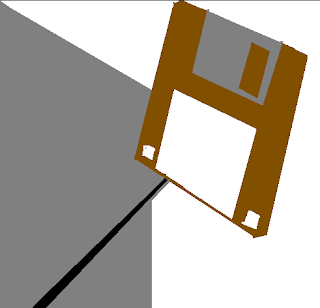Remote Arch linux install prep.
Installed arch linux on an i686 (aka pentium II). Installed linux many a time, but
this is a new experience using arch as an os on a desktop. One thing that was different was to use the secure shell to remotely connect to
the install machine. That way I could cut and paste commands as needed
and save a lot of typing. There were some issues, that really were not
issues. Had to use a search engine to rectify things I did not
understand. Allegedly the live cd makes it easy to install. I had to do
it the old fashion way. Having linux experience already made things
easier. If I had been a novice, it would not have been installed. Will
probably take the several instruction sheets I used to make my own
install procedure. Kde seemed to work ok and the command line was very
zippy.
I am assuming you know how to download and burn the arch linux cd.
https://www.archlinux.org/download/
http://mirrors.gigenet.com/archlinux/iso/2014.01.05/
Apache Server at mirrors.gigenet.com Port 80
Of course I had already installed arch linux on the pogoplug a while back.
Boot the arch minimal iso in the target machine.
At the root prompt change the password
# passwd
root@archiso ~ # passwd
Enter new UNIX password:
Retype new UNIX password:
passwd: password updated successfully
root@archiso ~ #
See if you have an internet connection
root@archiso ~ # ping -c 1 www.google.com
PING www.google.com (74.125.198.106) 56(84) bytes of data.
64 bytes from og-in-f106.1e100.net (74.125.198.106): icmp_seq=1 ttl=44 time=20.5 ms
--- www.google.com ping statistics ---
1 packets transmitted, 1 received, 0% packet loss, time 0ms
rtt min/avg/max/mdev = 20.597/20.597/20.597/0.000 ms
root@archiso ~ #
See what the name of your nic card is to the system
root@archiso ~ # dmesg | grep eth
[ 37.369974] systemd-udevd[178]: renamed network interface eth0 to enp0s12
Get the ip address of the nic.
# ip addr show dev enp0s12
2: enp0s12: <BROADCAST,MULTICAST,UP,LOWER_UP> mtu 1500 qdisc pfifo_fast state UNKNOWN group default qlen 1000
link/ether 00 00 00 00 00 00 00 brd ff:ff:ff:ff:ff:ff
inet 192.168.8.127/24 brd 192.168.8.255 scope global enp0s12
valid_lft forever preferred_lft forever
inet6 fe80::210:5aff:fe19:fd88/64 scope link
valid_lft forever preferred_lft forever
Start the ssh session
# systemctl start sshd
Go to a remote machine and log in (since root is the only user, you have to log in as root with the password you just chose)
$ ssh root@192.168.8.127
The authenticity of host '192.168.8.127 (192.168.8.127)' can't be established.
ECDSA key fingerprint is (a bunch of hex numbers).
Are you sure you want to continue connecting (yes/no)? yes
Warning: Permanently added '192.168.8.127' (ECDSA) to the list of known hosts.
root@192.168.8.127's password:
Last login: Fri Jan 10 03:27:12 2014 from remotecomputer
root@archiso ~ #
Now you can turn off the monitor to the machine to be installed to save a bit of power. From here you can follow any number of arch linux command line install pages:
https://wiki.archlinux.org/index.php/Beginners%27_Guide/Installation
Skip past the network install since it is already working.
I am assuming you know how to download and burn the arch linux cd.
https://www.archlinux.org/download/
http://mirrors.gigenet.com/archlinux/iso/2014.01.05/
Index of /archlinux/iso/2014.01.05
| Name | Last modified | Size | Description | |
|---|---|---|---|---|
| Parent Directory | - | |||
| arch/ | 05-Jan-2014 03:26 | - | ||
| archlinux-2014.01.05-dual.iso | 05-Jan-2014 03:41 | 528M | ||
| archlinux-2014.01.05-dual.iso.sig | 05-Jan-2014 03:41 | 287 | ||
| archlinux-2014.01.05-dual.iso.torrent | 05-Jan-2014 03:41 | 30K | ||
| archlinux-bootstrap-2014.01.05-i686.tar.gz | 05-Jan-2014 03:42 | 75M | ||
| archlinux-bootstrap-2014.01.05-i686.tar.gz.sig | 05-Jan-2014 03:42 | 287 | ||
| archlinux-bootstrap-2014.01.05-x86_64.tar.gz | 05-Jan-2014 03:44 | 77M | ||
| archlinux-bootstrap-2014.01.05-x86_64.tar.gz.sig | 05-Jan-2014 03:44 | 287 | ||
| md5sums.txt | 05-Jan-2014 03:44 | 220 | ||
| sha1sums.txt | 05-Jan-2014 03:44 | 244 | ||
Of course I had already installed arch linux on the pogoplug a while back.
Boot the arch minimal iso in the target machine.
At the root prompt change the password
# passwd
root@archiso ~ # passwd
Enter new UNIX password:
Retype new UNIX password:
passwd: password updated successfully
root@archiso ~ #
See if you have an internet connection
root@archiso ~ # ping -c 1 www.google.com
PING www.google.com (74.125.198.106) 56(84) bytes of data.
64 bytes from og-in-f106.1e100.net (74.125.198.106): icmp_seq=1 ttl=44 time=20.5 ms
--- www.google.com ping statistics ---
1 packets transmitted, 1 received, 0% packet loss, time 0ms
rtt min/avg/max/mdev = 20.597/20.597/20.597/0.000 ms
root@archiso ~ #
See what the name of your nic card is to the system
root@archiso ~ # dmesg | grep eth
[ 37.369974] systemd-udevd[178]: renamed network interface eth0 to enp0s12
Get the ip address of the nic.
# ip addr show dev enp0s12
2: enp0s12: <BROADCAST,MULTICAST,UP,LOWER_UP> mtu 1500 qdisc pfifo_fast state UNKNOWN group default qlen 1000
link/ether 00 00 00 00 00 00 00 brd ff:ff:ff:ff:ff:ff
inet 192.168.8.127/24 brd 192.168.8.255 scope global enp0s12
valid_lft forever preferred_lft forever
inet6 fe80::210:5aff:fe19:fd88/64 scope link
valid_lft forever preferred_lft forever
Start the ssh session
# systemctl start sshd
Go to a remote machine and log in (since root is the only user, you have to log in as root with the password you just chose)
$ ssh root@192.168.8.127
The authenticity of host '192.168.8.127 (192.168.8.127)' can't be established.
ECDSA key fingerprint is (a bunch of hex numbers).
Are you sure you want to continue connecting (yes/no)? yes
Warning: Permanently added '192.168.8.127' (ECDSA) to the list of known hosts.
root@192.168.8.127's password:
Last login: Fri Jan 10 03:27:12 2014 from remotecomputer
root@archiso ~ #
Now you can turn off the monitor to the machine to be installed to save a bit of power. From here you can follow any number of arch linux command line install pages:
https://wiki.archlinux.org/index.php/Beginners%27_Guide/Installation
Skip past the network install since it is already working.




Comments
Post a Comment